Municipal Truck and Fleet Maintenance Guide
Discover essential municipality truck maintenance practices and how to extend fleet life, reduce costs, and keep public services running reliably across the U.S
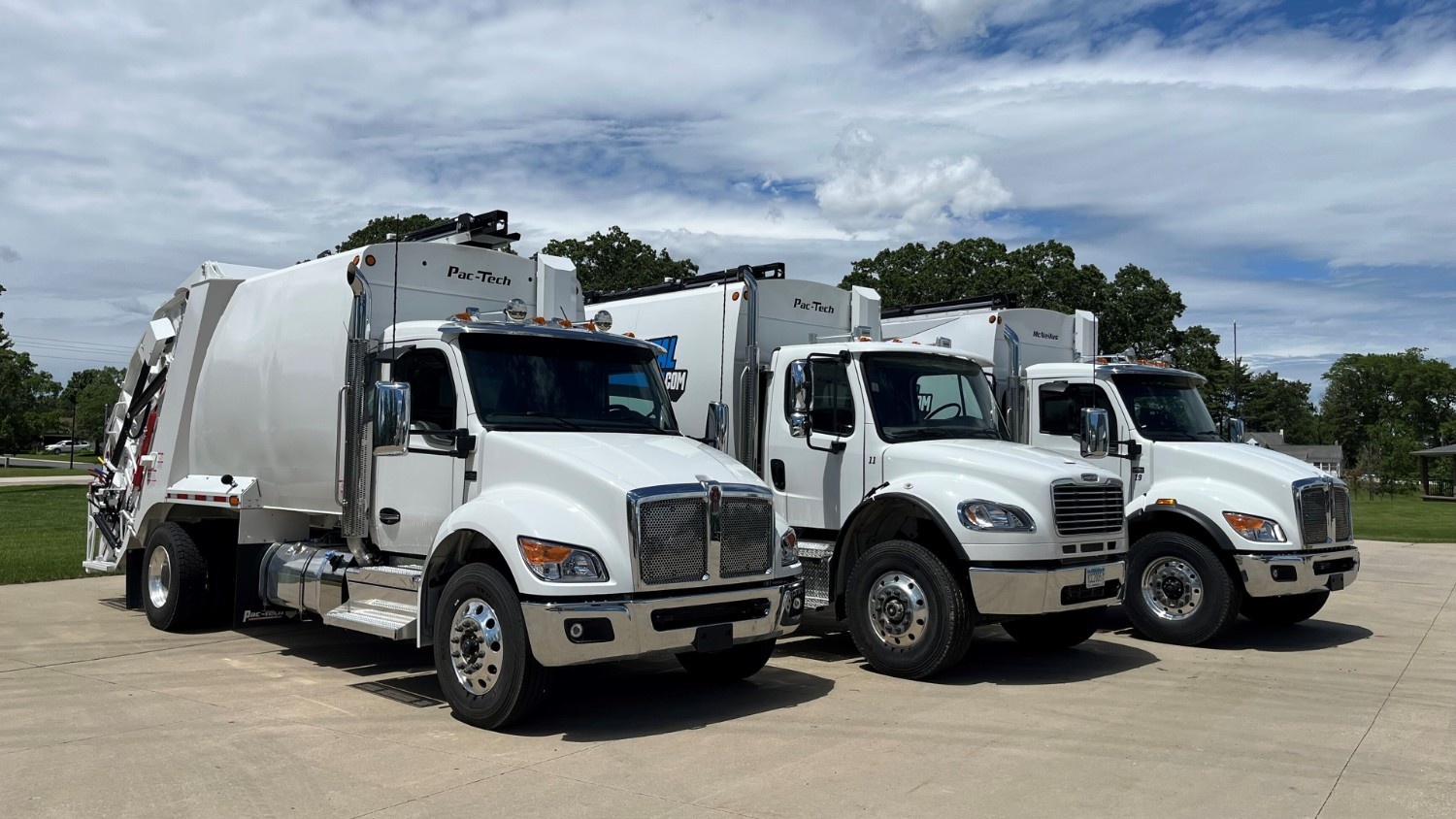
Discover essential municipality truck maintenance practices and how to extend fleet life, reduce costs, and keep public services running reliably across the U.S

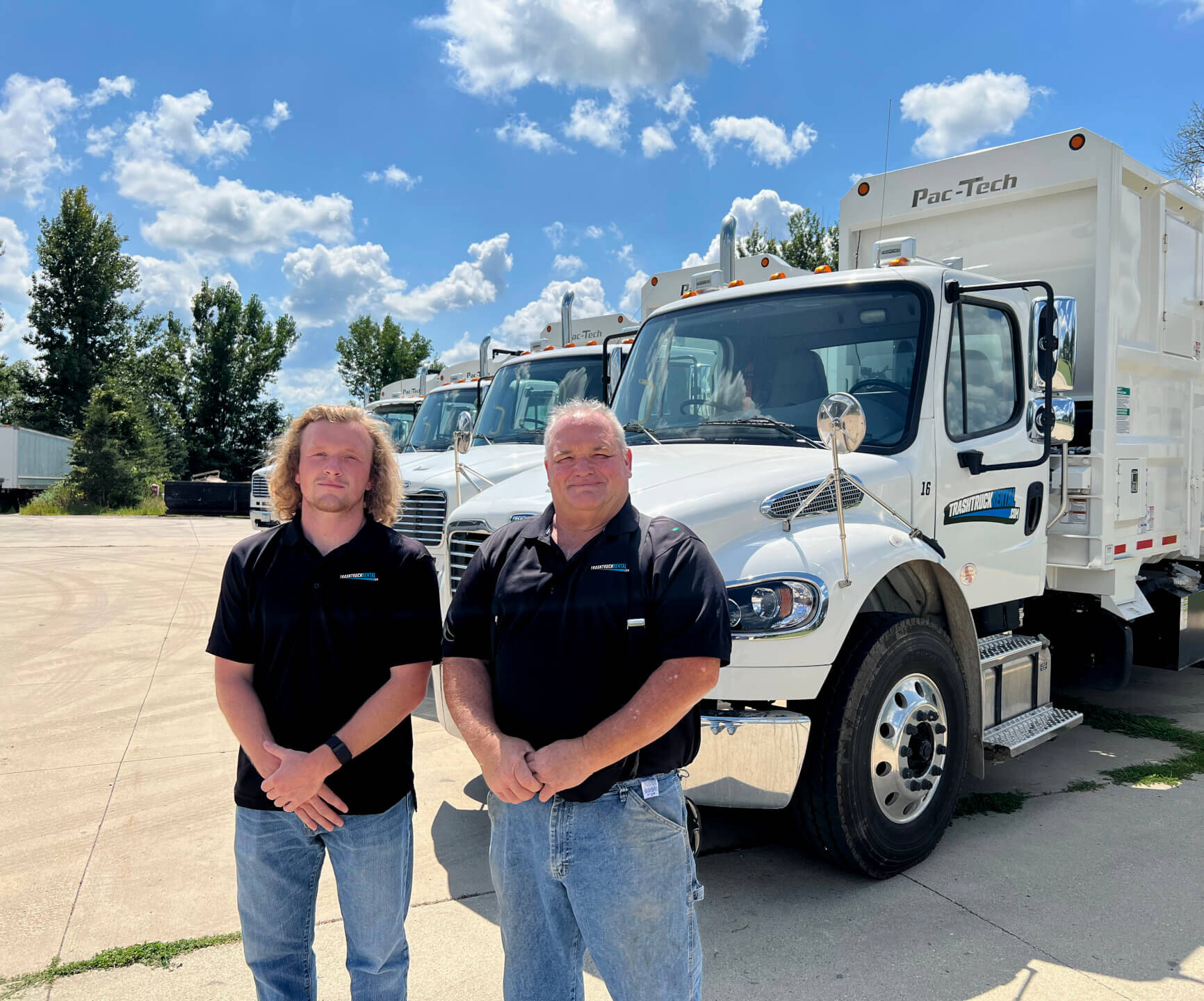
Can you imagine what your city would be like without basic services, such as garbage pickup, road work, and snow plows during a storm? Pretty hard to guess. That's because municipal trucks and fleets quietly do the heavy lifting to keep your city running smoothly. However, like any hardworking machine, they require regular maintenance to stay in top shape.
Across the U.S., there are thousands of these vehicles, and keeping them all running is a big job. When one breaks down without warning, it doesn't just slow things down; it can also delay essential services, raise costs, and even create safety issues.
That's why it's so important to have a solid maintenance plan. In this guide, you'll learn practical ways to keep city trucks running smoothly, from daily checks to using innovative technology so your fleet stays reliable and ready to serve your community.
When you hear “municipal truck and fleet maintenance,” it simply means taking care of all the vehicles that a city, county, or local government owns or uses. These aren’t just everyday cars; they’re the hardworking vehicles that help keep your community running smoothly.
Municipal-related modes are as follows:
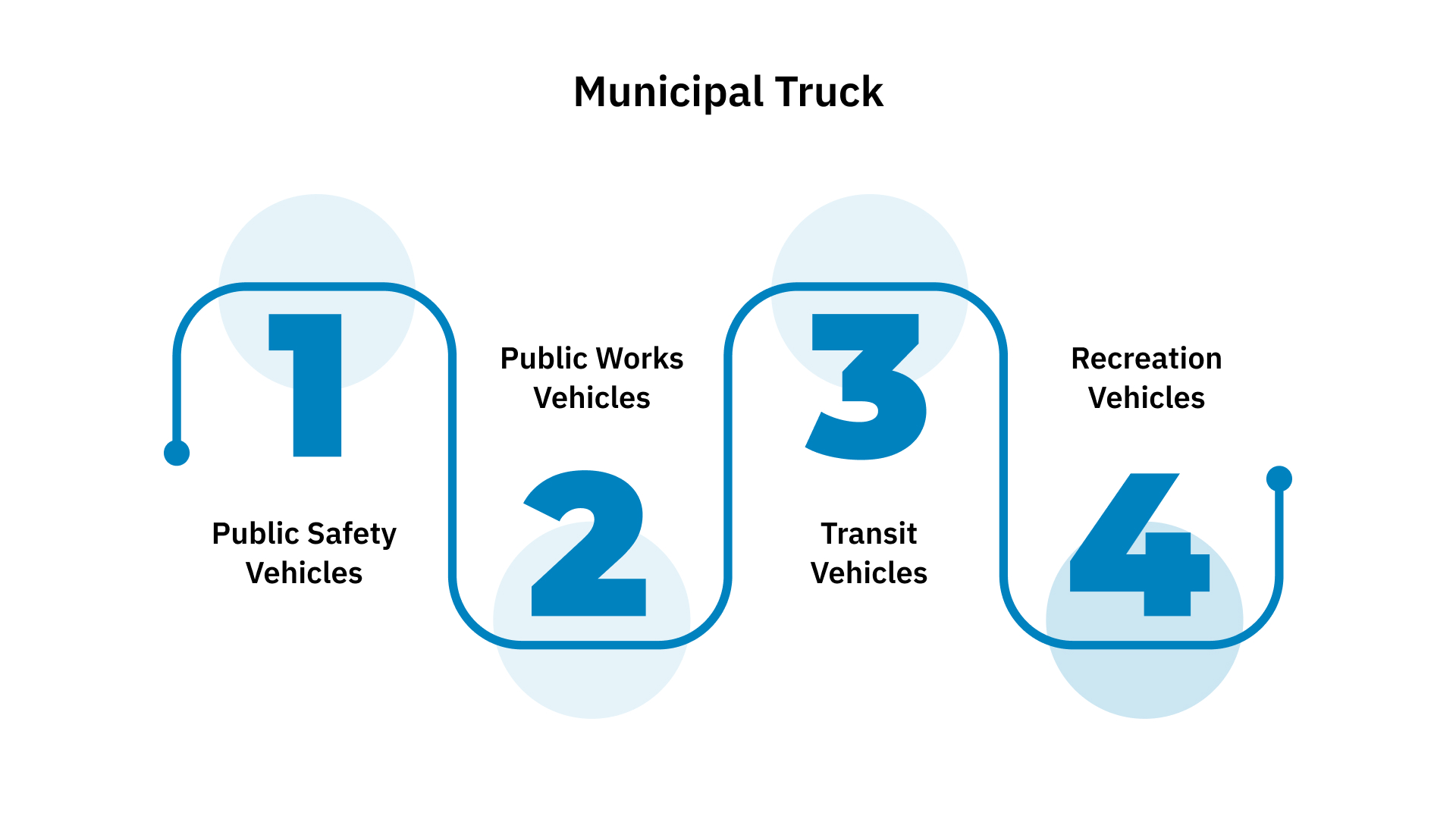
Fleet maintenance goes way beyond just fixing something when it breaks. It’s a smart, ongoing process that includes:
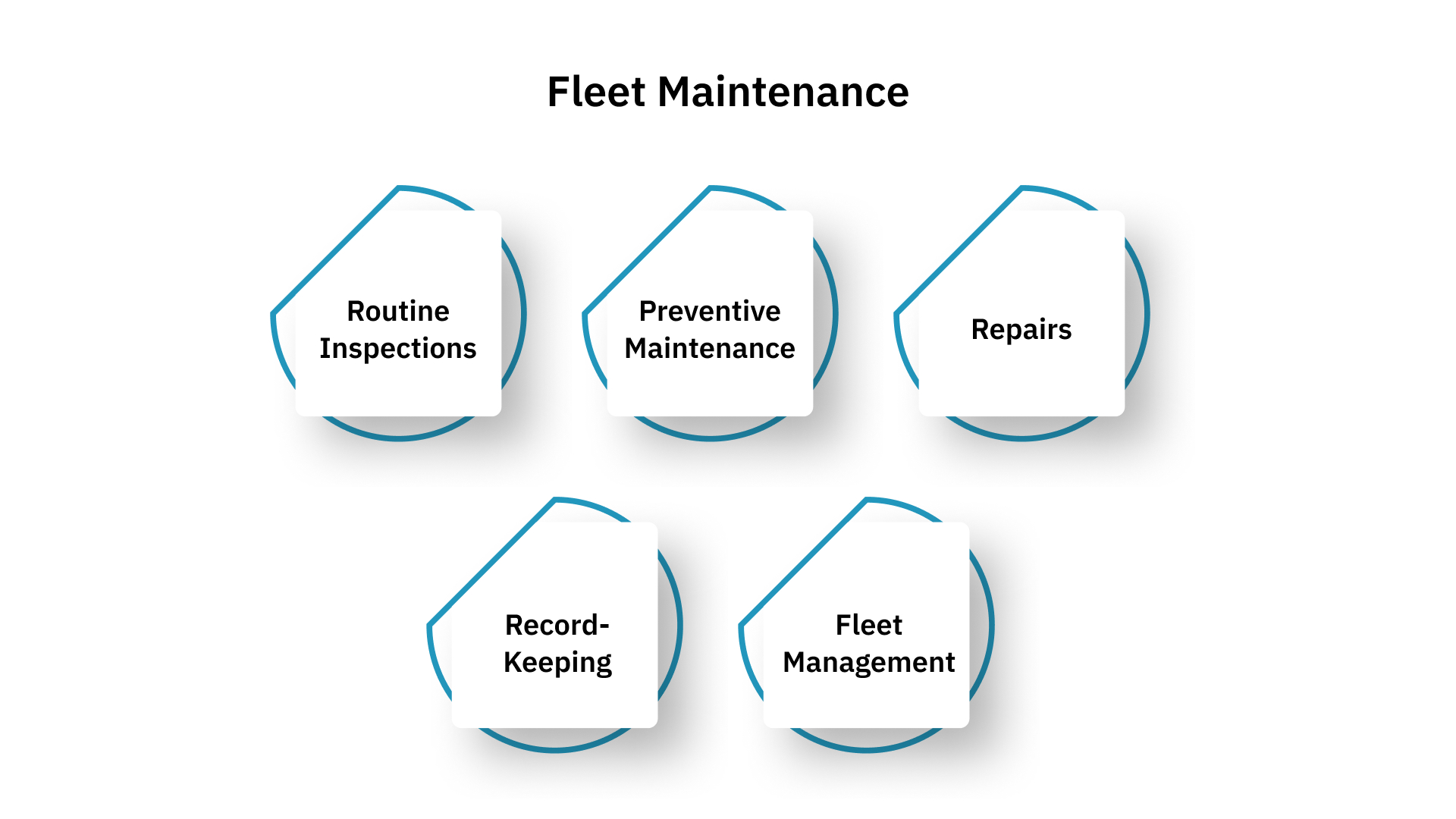
The main goal? To make sure every city-owned vehicle is safe, reliable, and ready when needed, without unexpected breakdowns. It also helps stretch public dollars further by avoiding costly emergency repairs.
City vehicles, such as garbage trucks, snowplows, and fire trucks, work hard every day to keep your community safe and running smoothly. However, behind the scenes, a great deal depends on how well these vehicles are maintained. Without a strong maintenance plan, things can quickly go wrong.
Here’s why regular truck maintenance is so crucial for municipalities:
A reliable maintenance program shows residents that their city is prepared, responsible, and committed to delivering dependable services every day.
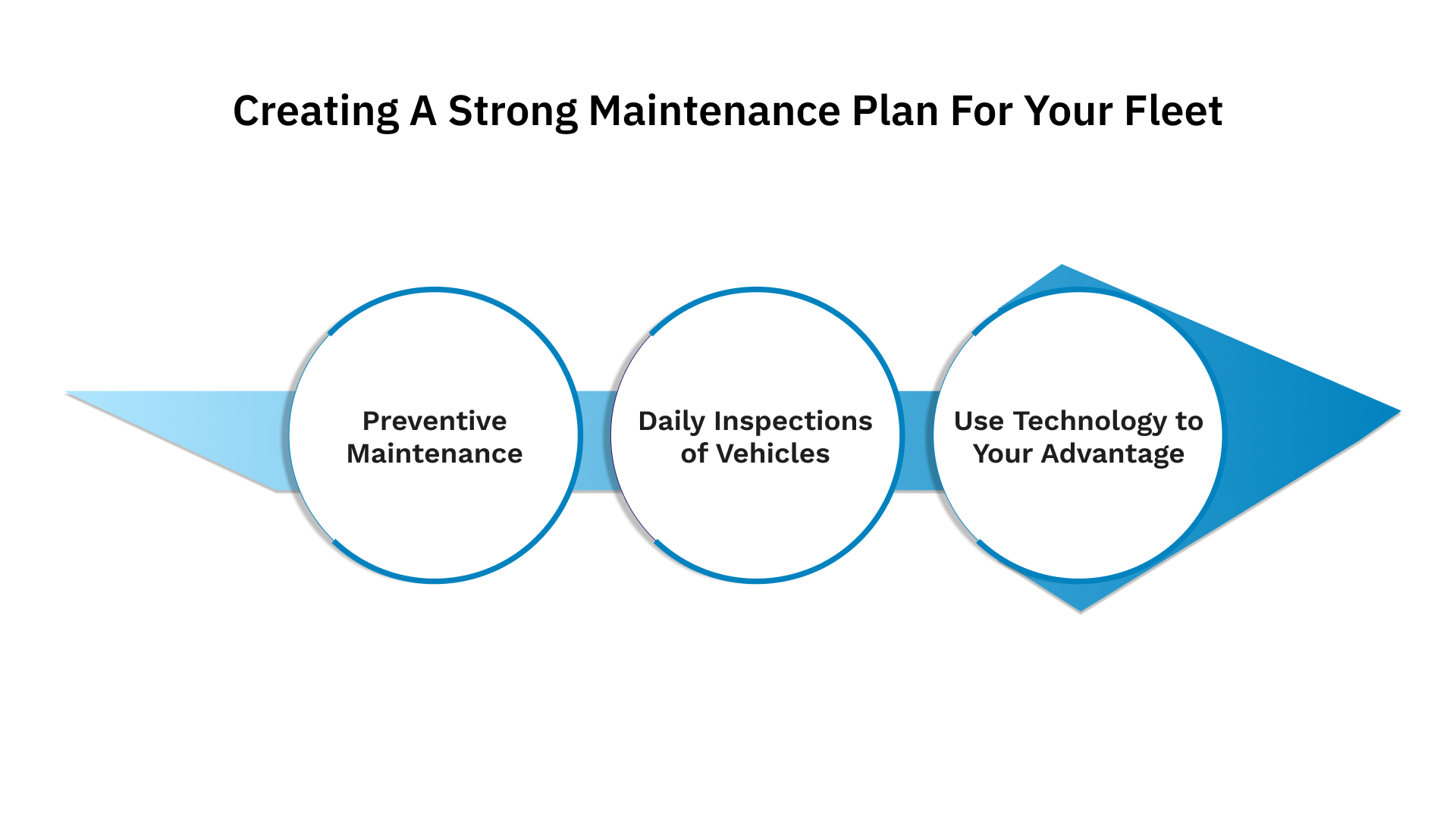
Want to keep your municipal trucks running safely and efficiently? It all starts with a solid maintenance program that you follow regularly and consistently.
Think of preventive maintenance like regular doctor visits for your vehicles. Just like check-ups help catch problems early, routine service keeps your fleet in good shape and avoids costly breakdowns.
Your drivers are the first to notice something that’s not right. That’s why daily checks before and after every trip are so necessary.
Modern tech tools make managing maintenance much easier and smarter.
When you build and follow a smart maintenance plan, you save time, cut costs, and keep your team safer on the road. A solid maintenance plan is essential, but challenges still arise. Here are common issues in municipal fleet maintenance and how to fix them.
Also Read: Essential Safety Tips for Garbage Truck Drivers and Companies
Taking care of a municipal fleet comes with its fair share of challenges. But once you understand the most common issues, you’re in a much better position to fix them quickly and efficiently.
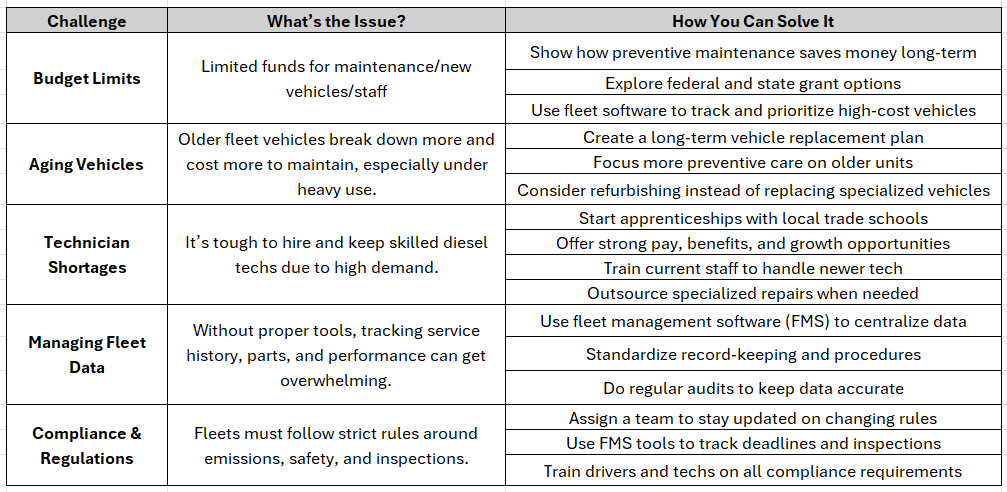
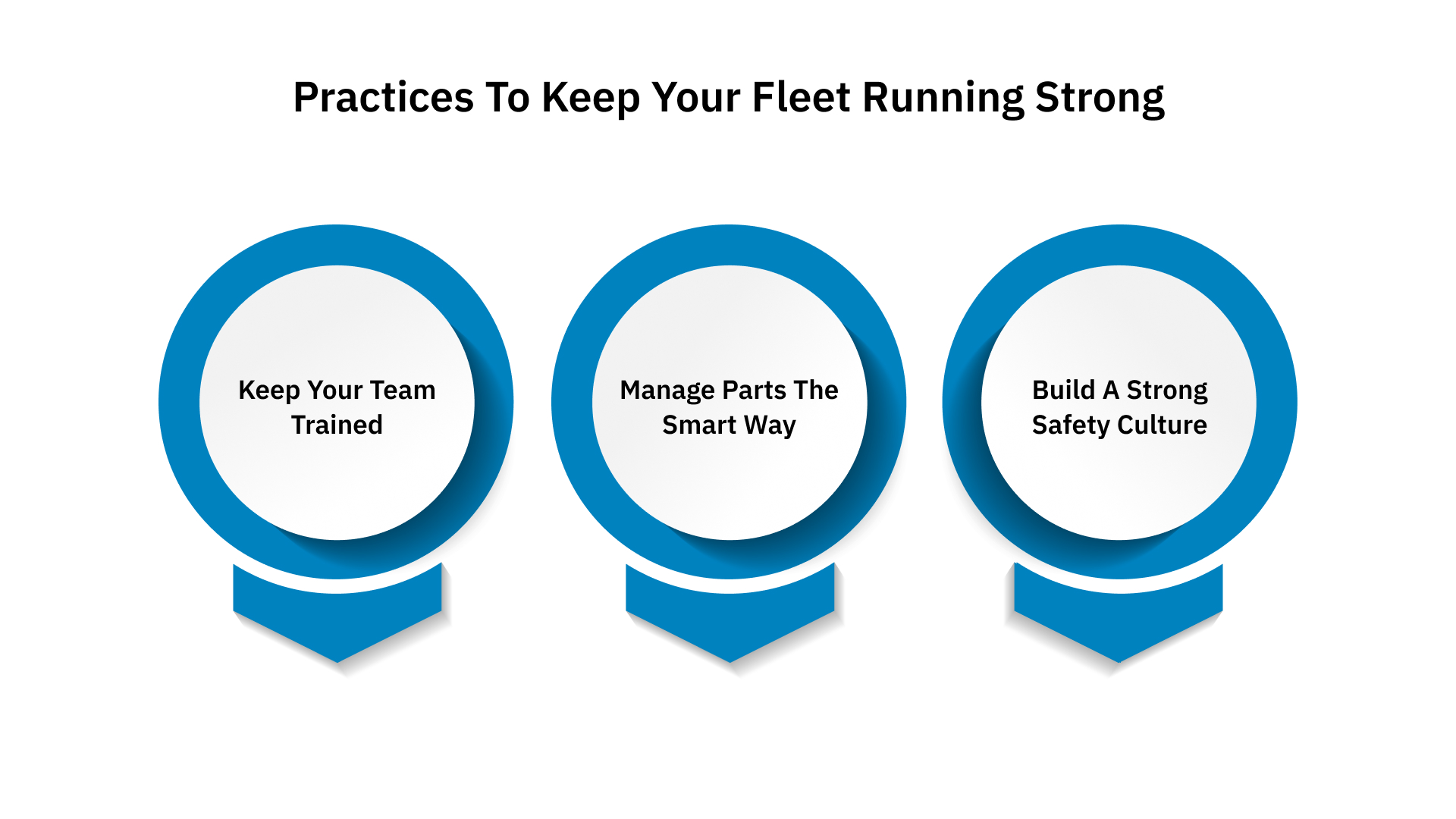
Besides regular maintenance, there are a few extra steps you can take to boost your fleet’s performance and extend the life of your vehicles.
While smart practices keep your fleet performing at its best today, it’s equally important to look ahead. Understanding emerging trends and innovations can help you prepare for what’s next in municipal fleet maintenance.
Also Read: The Benefits of Renting a Garbage Truck for Fleet Maintenance and Management
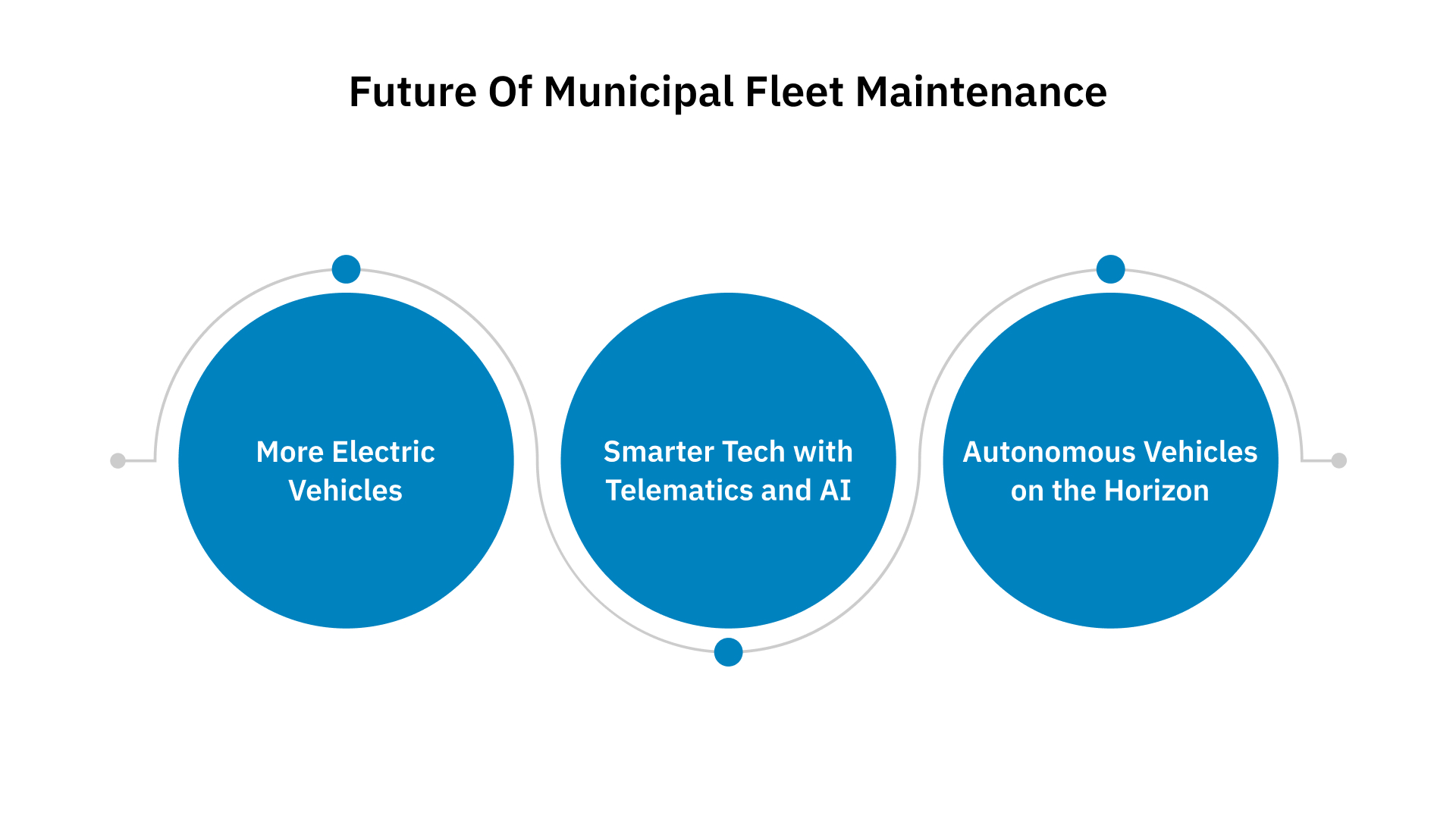
Fleet management is changing fast, and you’ll want to stay ahead of the curve. Here’s what you can expect in the near future:
The bottom line? Staying updated on new tools and trends will help you run a safer, more efficient, and future-ready fleet. That’s where rental solutions like Trash Truck Rental let you quickly scale your fleet during peak times, avoid large upfront costs, and test equipment before purchase.
Even with a solid maintenance plan, there are times when adding or replacing a specialized vehicle isn’t so simple. Maybe one of your trucks is in the shop longer than expected. Maybe you’re dealing with seasonal spikes, like summer waste surges or fall leaf cleanup. Or maybe your fleet is growing faster than your budget.
If you’re a fleet manager, director of operations, CEO, or COO, you know that buying a new truck isn’t always the best move. In addition to maintenance, rental options can provide flexible solutions for fleet needs, especially during repairs or seasonal demand.
At Trash Truck Rental, we understand the challenges of maintaining a fleet. With over 20 years of experience, we offer rental options designed for real-world needs:
We serve both municipalities and private waste management businesses, and our smart fleet solutions help lower your cost per route, reduce downtime, and ensure each dollar spent delivers maximum return.
We’re not just a rental provider, but we’re a partner that prioritizes your uptime and peace of mind.
The importance of dependable municipal truck maintenance cannot be overstated. These vehicles are the backbone of community services, and their reliable operation directly impacts the quality of life for citizens across the U.S.
By adopting a proactive approach, utilizing technology, investing in training, considering flexible solutions like Trash Truck Rentals, and addressing common challenges head-on, municipal fleet managers like you can make sure that your vehicles remain safe, efficient, and ready to serve for years to come.
Explore our truck options and contact us today to find the perfect fit for your fleet.
A: Proactive maintenance, like scheduled check-ups, helps find small problems before they become major, expensive breakdowns. This saves money on costly emergency repairs, reduces vehicle downtime (meaning services aren't interrupted), improves safety, and extends the overall life of the truck, saving taxpayer dollars in the long run.
A: Technology like Fleet Management Software (FMS) and telematics acts like a smart assistant for your fleet. It tracks vehicle data (mileage, engine health), automates maintenance reminders, helps manage parts, and can even predict potential failures. This allows fleet managers to schedule maintenance efficiently, prevent breakdowns, and optimize overall operations.
A: Municipal trucks include vehicles like garbage trucks, fire engines, police cars, snowplows, street sweepers, and utility vehicles. They play a huge role in keeping your community clean, safe, and running well. From collecting trash to responding to emergencies, these vehicles directly impact everyday life.
A: We understand budget constraints are a real challenge. The key is to see maintenance as an investment, not just an expense. Proactive maintenance actually saves money by preventing costly breakdowns and extending vehicle lifespan. Explore options like strategic replacement planning, seeking grants, and considering cost-effective rental solutions for temporary needs, which can free up capital.
A: The frequency of inspections and maintenance for municipal trucks depends on several factors, including the manufacturer's recommendations, how often and intensely the vehicle is used, and its age. Many municipal fleets implement daily pre- and post-trip driver inspections for immediate issues, along with more detailed preventive maintenance checks every few thousand miles or certain engine hours, or at least annually.
Ready to Upgrade Your Process Operations?